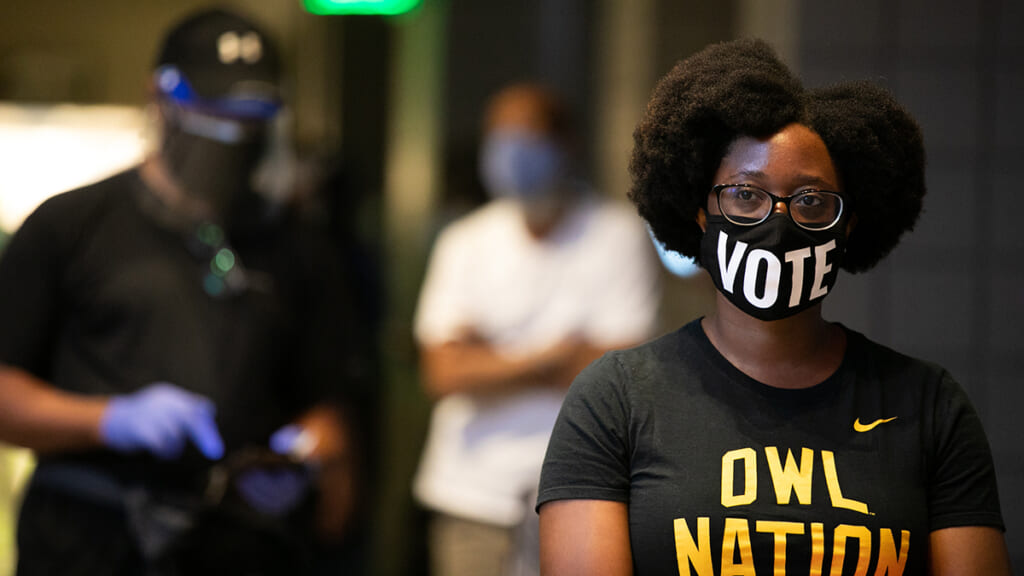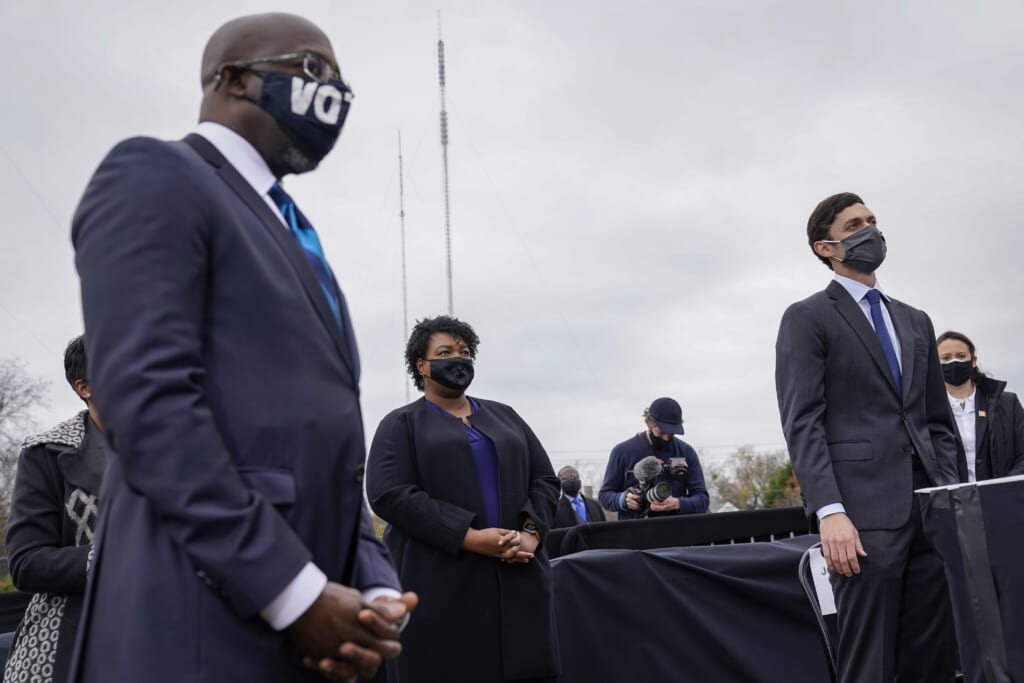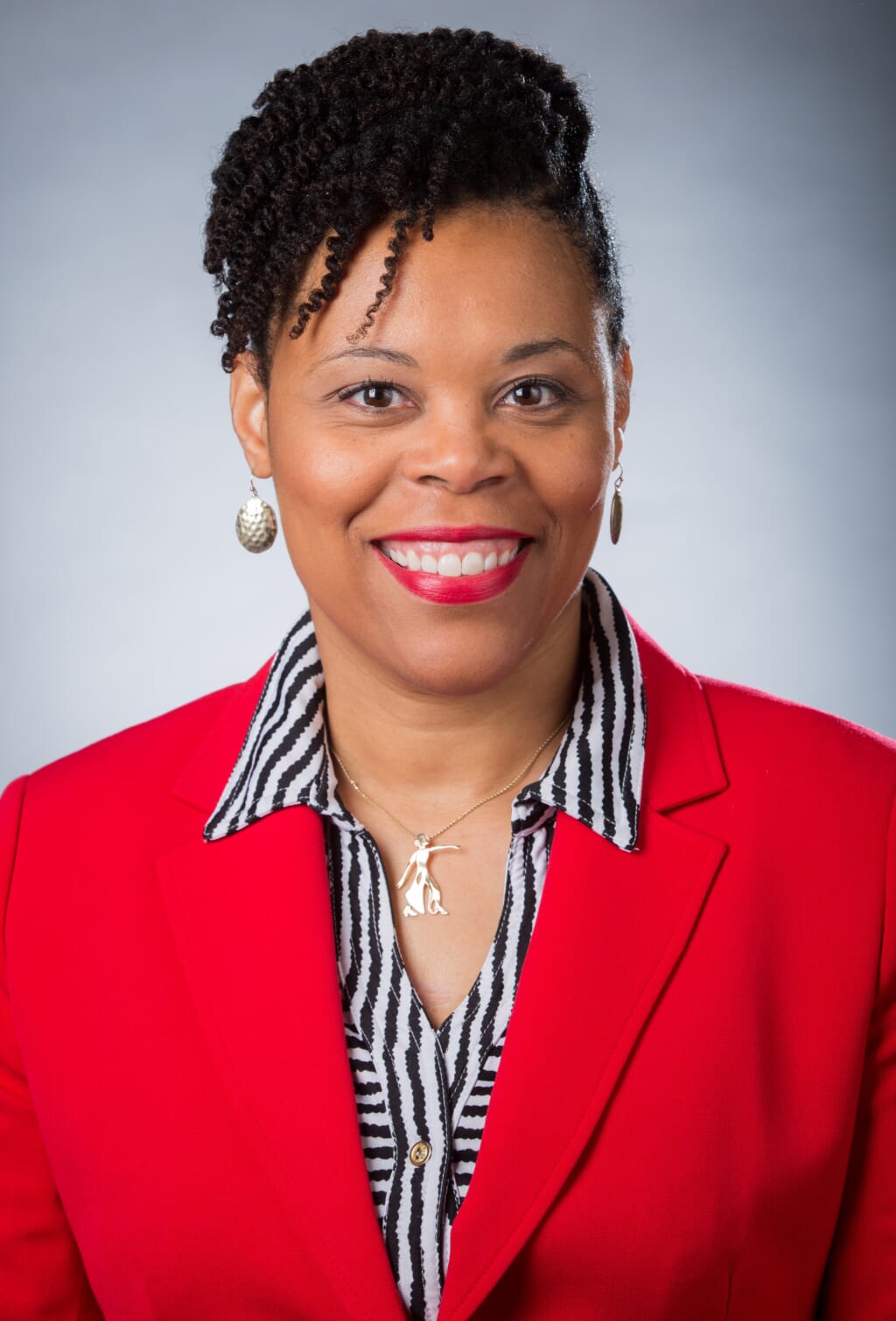Don’t be fooled, the true patriots are Black voters in Georgia
OPINION: The Capitol attack was an attack on Black voters that occurred on the day the city of Atlanta made a deliberate choice to vote against corrupt politicians

As 2021 officially began with the business of returning emails and virtual school , I was feeling very optimistic about Georgia’s Senate runoff elections due to the 3 million residents who voted early.
As the results were being reported on Tuesday night, I was excited to believe what was once impossible was going to happen. I grew up in Savannah and knew the long history of the difficulty it was for Democrats and Black people, in particular, to have the candidate of their choice win elected positions in either the state legislature or Congress — now the state would have two Democratic senators.
Read More: Trump pressured Georgia U.S. attorney to resign before runoffs
Since the ’90s, the state legislature carefully crafted congressional and state legislative district lines that peeled away Black voters from other likely Democratic voters, making it nearly impossible for the cities and counties–like the heavily Black populated Savannah Chatham County area–to elect a Democratic member of Congress.
While the legislature successfully diluted Black voting strength, the overall quality of life for Georgians continued to decline. In 2019, of the 10 million Georgians, 32% fell into the category of low income and Savannah reported a 24% poverty rate, which was higher than the state’s poverty rate of 15%.

The state consistently ranks in the bottom half of quality of life indexes that access education, income, health, etc. The current health crisis of COVID-19 and the economic fallout added an additional layer to the despair that many Georgians face.
Upon confirmation that both Reverend Raphael Warnock and Jon Ossoff would join the U.S. Senate, I was proud of my fellow Georgians who are committed to the franchise and the need for representation that offers the possibility for a better future in spite of gerrymanders, lawsuits, long lines, voter ID laws, voter registration purges, limited access to polling locations and possible illness or death due to COVID-19.
I was joyful that the strategic visionary political labor of Stacey Abrams and other Black women was receiving well-deserved recognition. As the day went on, my joy went from sugar to sh*t as some of us Southerners would say. I watched with shock, anger and dismay at the riotous band of domestic terrorists who stormed the United States Capitol.
While I was wondering how this happened, I was settled on the why. The mob took over the Capitol because of me.
Trump’s rowdy vagabonds who looted and ransacked congressional offices were motivated by his refusal to accept defeat and the conspiracy theories that voters and poll workers in cities with large Black populations, such as Philadelphia, Milwaukee and Atlanta, were thieves who used fraudulent ballots, faked signatures, and shredded ballots to prevent Trump from winning.

Central to those delusional ideas and actions of Trump’s sycophants is a worldview grounded in white supremacy that espouses white voters are the only Americans and only they have the right to vote and elect the president.
These terrorists and their riot at the Capitol did what white supremacist behavior is designed to do: provoke fear and center white people. On the day and week we should be celebrating the Senate election results, the political work of Black women and preparing to witness the inauguration of the first Black woman vice president we were forced to abruptly pivot.
The attack was designed to be a brute show of force to demonstrate the consequences of going against the will of white supremacy. This was a continuation of a long line of political violence in which courthouses and polling places were attacked when Black voters attempted to vote. While there were no Black voters in the Capitol that day, the mob attempted to circumvent the will of Black voters by preventing the Constitutional act of counting the certified Electoral College votes.
The Capitol attack was an expression of voter suppression and an attack on Black voters, organizers, politicians that occurred on the day the country learned the city of Atlanta, along with other Black communities in Georgia, made a deliberate choice to vote against corrupt politicians. The leaders who regurgitated Trump talking points and supported efforts to disenfranchise the almost 2.5 million voters, who chose Biden.
Read More: Georgia GOP proposes strict absentee voting measures following runoff
The terrorists attacked a physical building while referring to themselves as patriots and claiming that they were victorious. The true patriots and victors, however, were not in the building that day. They are the countless number of Black people who continue to defy the odds even when they have met defeat.
Instead of destroying the Capitol, Black voters provide a political vision and work that upholds the ideals the United States Capitol represents. In thinking about that fact my day was once again sugar. Sweet indeed.

Pearl K. Dowe is the Asa Griggs Candler Professor of Political Science and African American Studies at Emory University. Dr. Dowe serves as co-editor of National Review of Black Politics.
Have you subscribed to theGrio’s new podcast “Dear Culture”? Download our newest episodes now!
TheGrio is now on Apple TV, Amazon Fire, and Roku. Download theGrio today!
More About:Opinion

